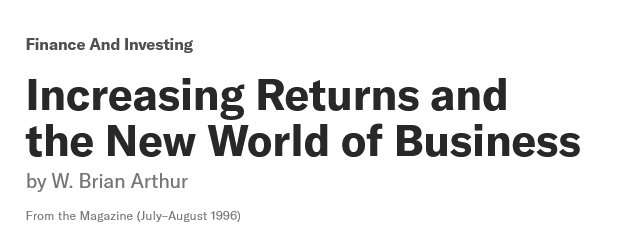Sublime
An inspiration engine for ideas
Stigler’s mark in economics centered on the economic competency—or rather incompetency—of state power. Once man’s behavior was reduced to utility-maximizing self-interest, economists were able to tear down the edifices of government intervention in the economy; they sought “a large role for explicit or implicit prices in the solution of many social
... See moreGlory M. Liu • Adam Smith’s America: How a Scottish Philosopher Became an Icon of American Capitalism
Empirical research from around the globe has demonstrated this beyond a reasonable doubt. For example, researchers at the London School of Economics released a paper titled, “Why Do People Stay Poor?” that illustrated how the lack of initial wealth (and not motivation or talent) is what keeps people in poverty. The researchers tested this
... See moreNick Maggiulli • Just Keep Buying
James Dale Davidson • The Sovereign Individual: How to Survive and Thrive During the Collapse of the Welfare State
The war and the Depression decade before it had obliterated the fortunes of the Gilded Age. Industrial robber barons, monopolists, titans of Wall Street, and heirs to vast wealth lost almost everything they had accumulated or had it taxed away. The vast playing field of the American economy was greatly leveled, opening the way to the largest middle
... See moreRobert B. Reich • Coming Up Short
Sinéad O’Sullivan • Honey, We Need To Talk About Venture Capital
According to the Small Business Administration, the odds of a single business even achieving $10M/year in revenue are .4%, or 1 in 250.
Alex Hormozi • $100M Offers: How To Make Offers So Good People Feel Stupid Saying No (Acquisition.com $100M Series Book 1)

He was questioning the idea of the rich as the best and rightful administrators of the surplus of the society.